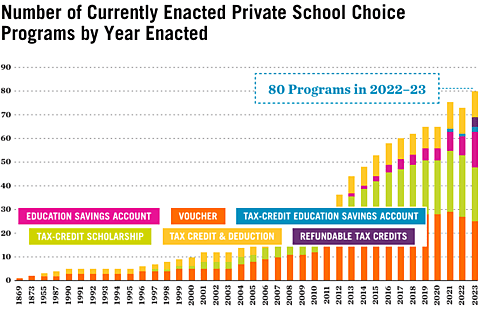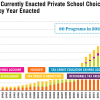What level of government—state or federal—should set economic and social policy?
The modern presumption is that “good” policies should be implemented federally. That is the logic behind the federal role in setting a minimum wage, providing Medicaid, Medicare, and Social Security, imposing nationwide environmental regulations, and much more. If something “works,” so the thinking goes, why not apply it everywhere?
Yet there are reasons to prefer state-level control (if any), even if that sometimes produces less-than-ideal outcomes.
For starters, most policies involve a mix of positive and negative effects. And people differ on not only what is “good” but how to balance costs and benefits. A federal mandate forces national uniformity on divisive issues, such as abortion or school curricula. Letting states choose leaves room for calmer disagreement and lower polarization.
Further, government policies and programs tend to grow, especially those at the federal level, but state variation serves as a check. Critics worry about a “race to the bottom,” where states gut regulation to attract business or skimp on redistribution to avoid being a “welfare magnet.” But this tendency, to the extent it occurs, is a useful counterweight to the excessive expansion that is likely to occur when policies are made at the federal level. Plus, in practice, states often go beyond federal standards: Think of California’s aggressive emissions rules or Massachusetts’ expansion of Medicaid before the Affordable Care Act.
To be sure, state-level control has downsides. Some states may do too little—for example, they might underinvest in public health. And state-level variation means national companies face a patchwork of laws and regulations, which raises costs.
But these negatives are plausibly worth accepting to avoid one-size-fits-all federal policies. In particular, federalism likely works best when applied consistently across all policies, whether politically left or right.
This article appeared on Substack on May 22, 2025. Lucy Patalano, a student at Wellesley College, cowrote this post.



















